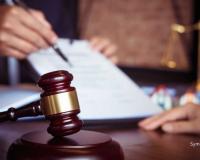Use of Spyware Against Terrorists Is Not Wrong, Says Supreme Court

New Delhi, April 29 – The Supreme Court on Tuesday declined to make public any report related to the "security and sovereignty" of the country and questioned what was wrong in using "spyware against terrorists." A bench comprising Justice Surya Kant and Justice N. Kotiswar Singh indicated that while individual concerns about privacy could be addressed, the technical committee’s report was not something meant for public debate.
As per agency report, the court asserted that it would not touch any report concerning national security but said individuals wishing to know whether they were affected could be informed. It emphasized that while personal concerns must be dealt with, such sensitive documents should not become topics for street-level discussions.
The court also mentioned it would have to assess to what extent the findings of the technical panel could be shared with individuals. Advocate Dinesh Dwivedi, representing one of the petitioners, argued that the critical issue was whether the government possessed spyware and whether it had been used.
He remarked that if such spyware existed, there was nothing to stop its continued use today. In response, the bench stressed the need for responsible handling of the situation and assured it would consider how much of the report could be disclosed.
The court stated that the existence of spyware was not itself wrong; the real concern was about who it was used against. It made it clear that compromising national security was unacceptable and that while private citizens had a constitutionally protected right to privacy, actions aimed at terrorists did not fall under such protection.
Senior advocate Kapil Sibal, representing journalist Paranjoy Guha Thakurta, referenced a U.S. district court judgment where WhatsApp had disclosed hacking activities. He noted that even when experts had earlier reviewed the situation, no direct hacking was confirmed, but now evidence provided by WhatsApp was available. Sibal argued that the redacted portions of the findings should be shared with affected individuals so they could be informed.
Solicitor General Tushar Mehta contended that investigations should not be conducted merely to gather information without a specific allegation or evidence. He reiterated that there was nothing wrong with using spyware against terrorists, who could not claim a right to privacy.
Senior advocate Shyam Divan, appearing for another petitioner, argued that the technical committee’s report should be made public without any redactions.
Following the arguments, the Supreme Court scheduled the next hearing for July 30.
Earlier, a technical panel appointed by the Supreme Court to investigate the alleged unauthorized use of Pegasus spyware found malware in five out of 29 examined phones by August 25, 2022, but could not conclusively determine whether Israeli spyware was used. Reviewing the findings submitted by former Supreme Court judge R.V. Raveendran, the court had noted that the central government had not cooperated with the Pegasus investigation.
In 2021, the Supreme Court had ordered an inquiry into allegations that Israeli spyware Pegasus was used by Indian agencies for surveillance targeting politicians, journalists, and activists, and had appointed technical and supervisory committees to oversee the investigation.



